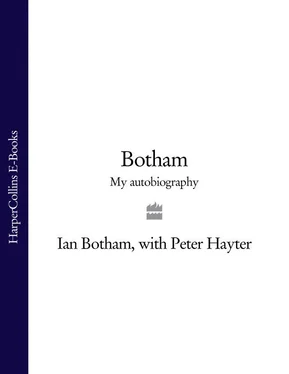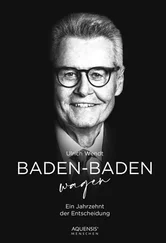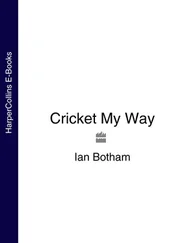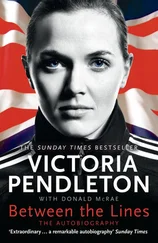The problems of living and working under the scrutiny of the media were only one of the reasons why Liam made his decision to give up cricket in favour of his chosen professional sport, rugby union.
I never had any doubts that Liam was good enough to make a career for himself in cricket. His performance on first-class debut for Hampshire on 28 August 1996, two days short of his 19th birthday, proved the condition known as golden balls was indeed hereditary. Pulled out of a 2nd XI game he turned up for the county’s match against Middlesex at Portsmouth after the start of play, dismissed Gatt with his seventh delivery and finished with figures of 5 for 67. Had he been able to operate outside the glare of publicity over who he was and rather just be judged on how good he was, he might even have gone all the way.
But his decision was based as much on how he saw the two sports progressing as much as any feeling over living in the spotlight. Frankly, for a young man equally good at rugby and cricket, by the time he had to choose, there seemed little choice to make.
Of course, I would have loved to have played with or against Liam at county level. And I was delighted when he was brought in as a last-minute replacement for a charity match between the Rest of the World and my own England XI at Hove a few weeks before I announced my retirement. But realistically it was never going to happen in any other way. By announcing my retirement when I did, rather than dragging it out to the end of the season, I felt I could at least try and deflect some of the inevitable attention away from him as he attempted to take his first steps in the game.
I don’t regret many things in my life but the circumstances surrounding my final game have left me with a tinge of guilt. Although I was more than happy to be bowing out against the Aussies, it was such a spontaneous decision that I didn’t even get an opportunity to tell my parents about it. I didn’t exactly know what to tell them and, besides, the telephone did not seem the right way to go about it. As usual, it is the people nearest to you that you think about least. In all likelihood my father Les would have wanted to be there for my swansong; in some ways it was a relief that the game itself was a non-event.
I had decided to keep the news quiet until I had had the chance to talk to Geoff Cook, the director of cricket and David Graveney, the captain, about my plans. Dean Jones was the only one of my team-mates who knew in advance. I have always been very close to him and knew that, in the tradition of a true Aussie, if you tell him something in confidence you can be certain it isn’t going anywhere else. I told him on the Saturday morning when I picked him up on our way to the game. Dean said he wasn’t surprised. He told me that he and his wife, Jane, had been talking about me quitting only the week before, speculating on when it would happen. When I arrived at the Durham University ground, I saw David and Geoff, told them my decision and swore them to secrecy. At first David was dumbfounded, but when I explained that the body had had enough he accepted it. Mathematically, we still had a chance in the Sunday league competition and I told him that if he wanted me for the last few games, I would be happy to oblige. Once I told Geoff the reasons for my decision, he agreed that I had done the right thing and I appreciated that.
The information was so watertight that none of the other players knew about it until the following day, when the Mail on Sunday , who had managed to get wind of the story somehow, let the cat out of the bag. When I reached the ground for the second day’s play the place was buzzing. Geoff felt he had to confirm the story, but I was determined not to say anything publicly to anyone until I had fulfilled my newspaper column commitments by giving Chris Lander of the Daily Mirror the exclusive to which he and they were entitled. The rest would have to wait.
The third and final day’s play eventually started late in the afternoon because of rain, but there had been no sitting around for me. From the moment I arrived at the ground, it was like a circus. First there was a press conference that lasted 55 minutes, probably the longest of my career. Someone asked if I thought the rain would turn the day into something of an anti-climax, but I joked that as I had spent a lot of the last twenty years praying for a cloudburst, in some ways this would be a fitting end. I had hoped that my last day in first-class cricket would end more quietly than it did. I just wanted to drift back into the dressing room, pack up and go. The rain delay destroyed any prospect of a result, contrived or otherwise, but the skies cleared enough for us to play a pretty meaningless three or four hours in the afternoon. If ever there was a case where umpires or captains should be given a little bit of discretion in deciding to end the match, irrespective of the weather, this was it. The crowd was marvellous but nobody gained anything from us going out there except those who had spent so much time in the beer tent that they would have been captivated by watching Humpty Dumpty sitting on the wall. Steady, I wasn’t that overweight!
In my final spell of bowling I decided to have a bit of fun to try and cheer everyone up by doing my Jeff Thomson impersonations, among others. Then, after a few overs I turned to David Graveney and said: ‘Thanks David, I think that will do’. It was quite a moment. As I turned to take my position in the field, the reality of what I was doing suddenly hit me – no more bowling, no more batting, no more anything. The pavilion clock showed there was still half an hour to go but that was it from me, my time was over. It was the end.
Both batsmen, David Boon and Matthew Hayden, came down the wicket to shake my hand and I cannot remember anything that happened between that moment and the time stumps were drawn. I had, as they say, lost the plot. In fact, the only thing I do recall was my appalling attempt at keeping wicket for the final over of the match, minus pads and gloves. However, I was soon brought back down to earth when at the close of play I went into the dressing room to clear my locker. The bastards had pinched the lot!
On arriving home I threw myself into a small party we had arranged for close friends. I finally crashed at ten to five the following morning after talking Egyptian into the small hours with Alan Herd. It was only a short nap as I had to leave the house at 7.15 a.m. to catch a plane to Alderney where we have our second home. I have no idea how any of the others got home. It is quite possible, of course, that one or two might still be there now.
2 A BOUNCING BABY BOTHAM
There was a time three months into my mother Marie’s pregnancy when the entire Ian Botham story might have been over before it had even begun.
Both my parents had been good at sport, highly competitive and fit as fiddles. Les, who was a keen cricketer, ran for East Yorkshire, had a soccer trial for Hull City boys and played for Combined Services, while Marie had played cricket, badminton and hockey to a reasonable standard. For some reason, however, they had acute difficulties in starting a family.
Marie had suffered four miscarriages before she became pregnant with me. Then, a third of the way through this pregnancy, she went through a particularly rough patch of health, and there were very real fears that she was going to miscarry again. Towards the end she was confined to bed, and it was obviously a worrying time for her and Les. What must have made it worse for her was that Les, serving in the Fleet Air Arm, was stationed in Northern Ireland so he was absent when the time came for Marie to enter the maternity hospital in Heswall, Cheshire. There must have been an overpowering sense of relief when, on a drizzly 24 November 1955, the first shout was heard from a bouncing 10lb loz baby Botham and a telegram was duly sent to inform Les he had become a father. In the excitement, when he finally arrived on leave a week later, he managed to oversee a complete muddle in the registering of my birth. My parents had been married in Scotland and for sentimental reasons had settled on the Scottish spelling of ‘Iain’. But the birth certificate read ‘Ian’ – so that was to be my name. It also (thankfully) read ‘Terence’ rather than the family’s traditional second name for boys, ‘Herbert’ (although some would say I have been a right one ever since). There is a familiar ring about a Botham father being out of town for the birth of a Botham child. I was in Australia on a Whitbread Scholarship in 1977 when Kathy discovered she was pregnant with Liam; I missed Sarah’s birth because I was on tour; and I was again missing for the arrival of Becky when I made my first walk for Leukaemia Research from John O’Groats to Land’s End.
Читать дальше












